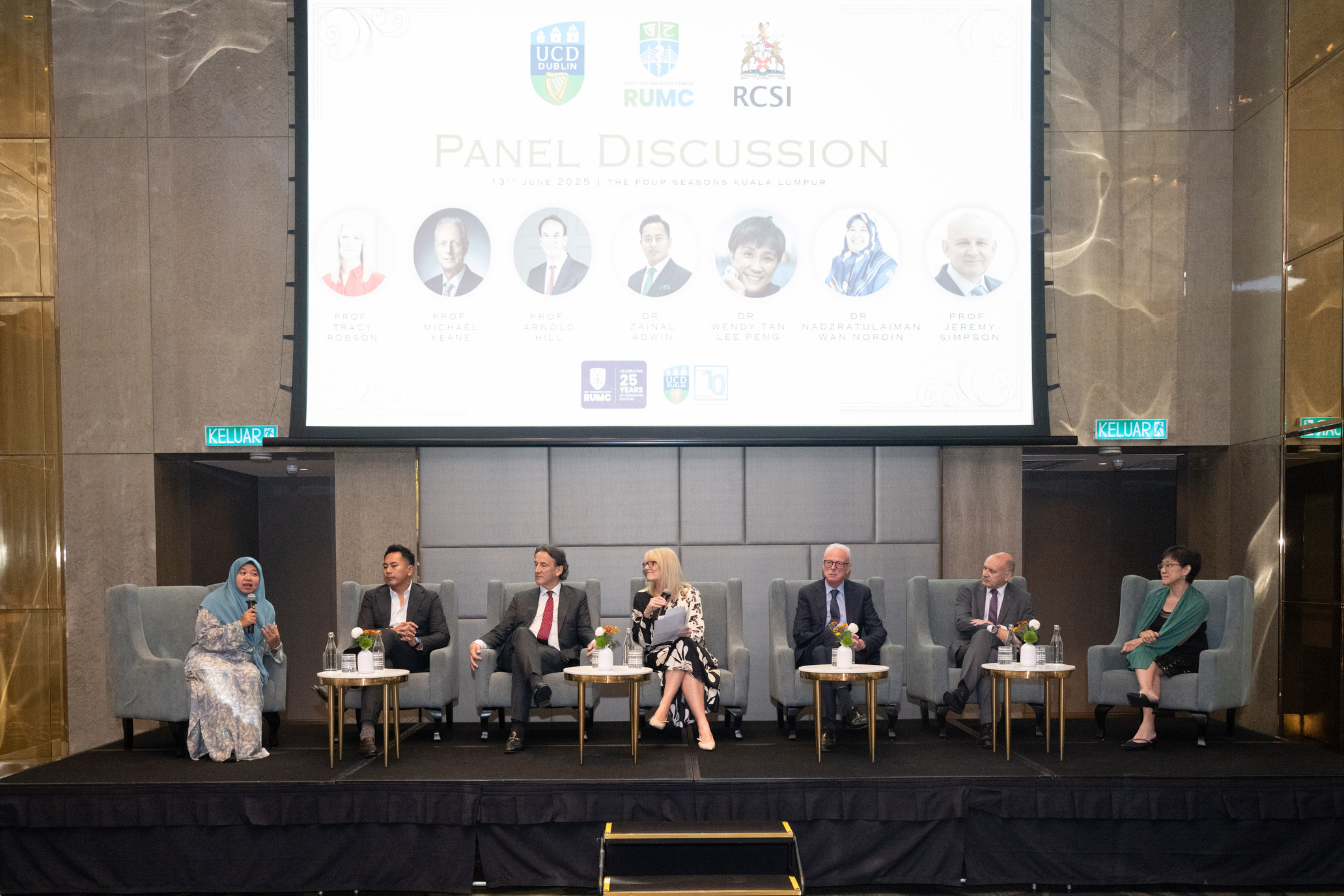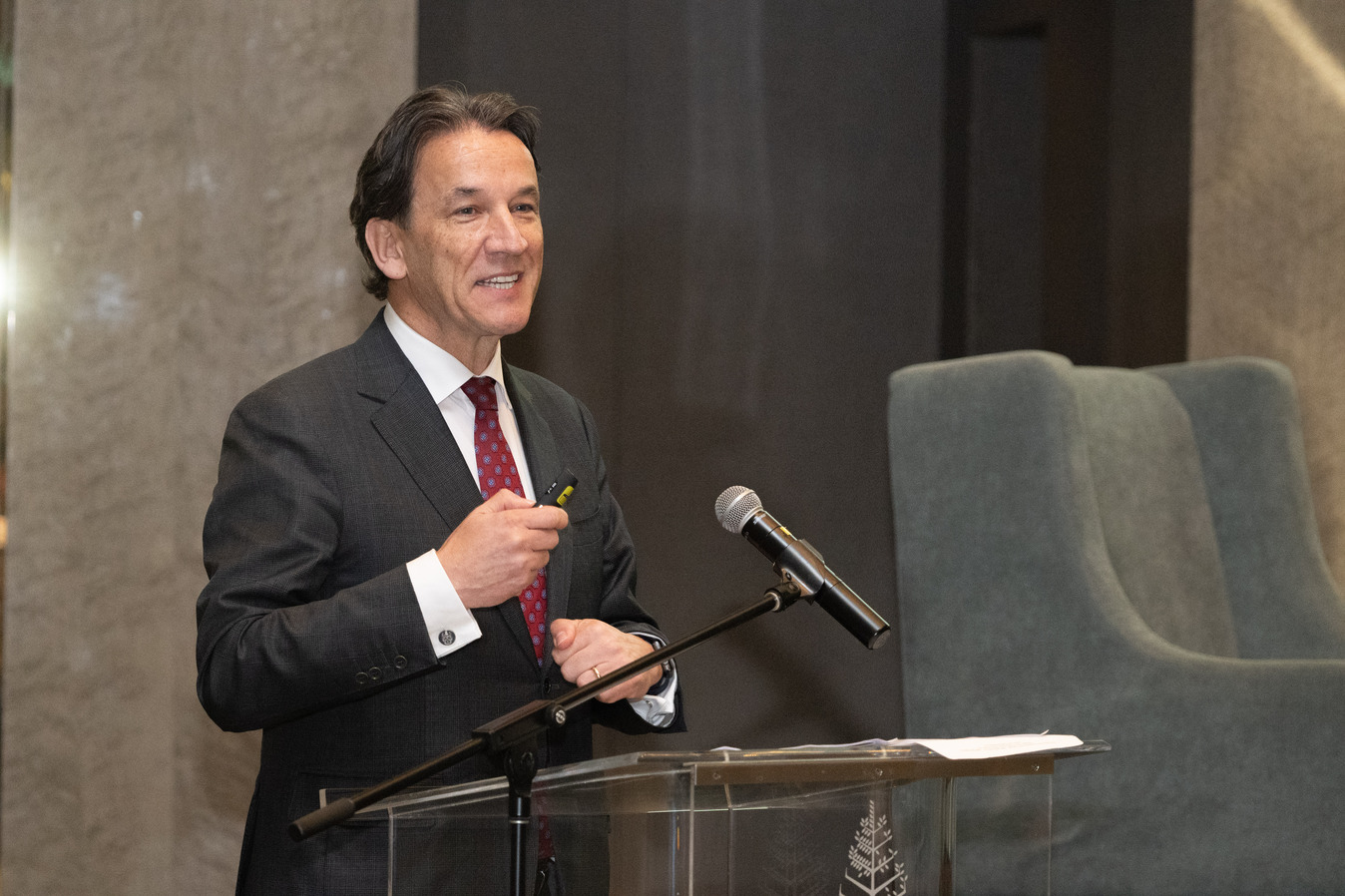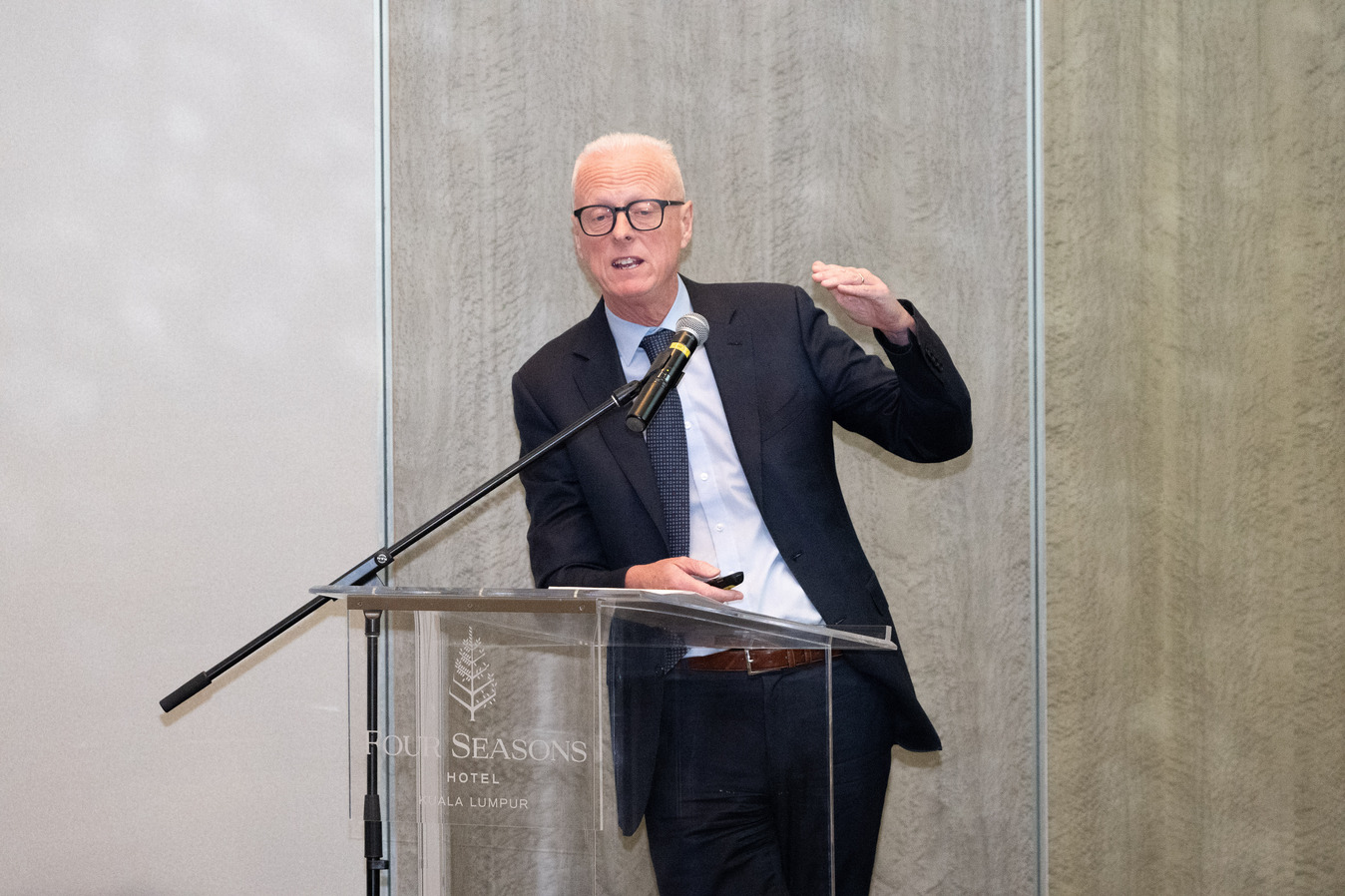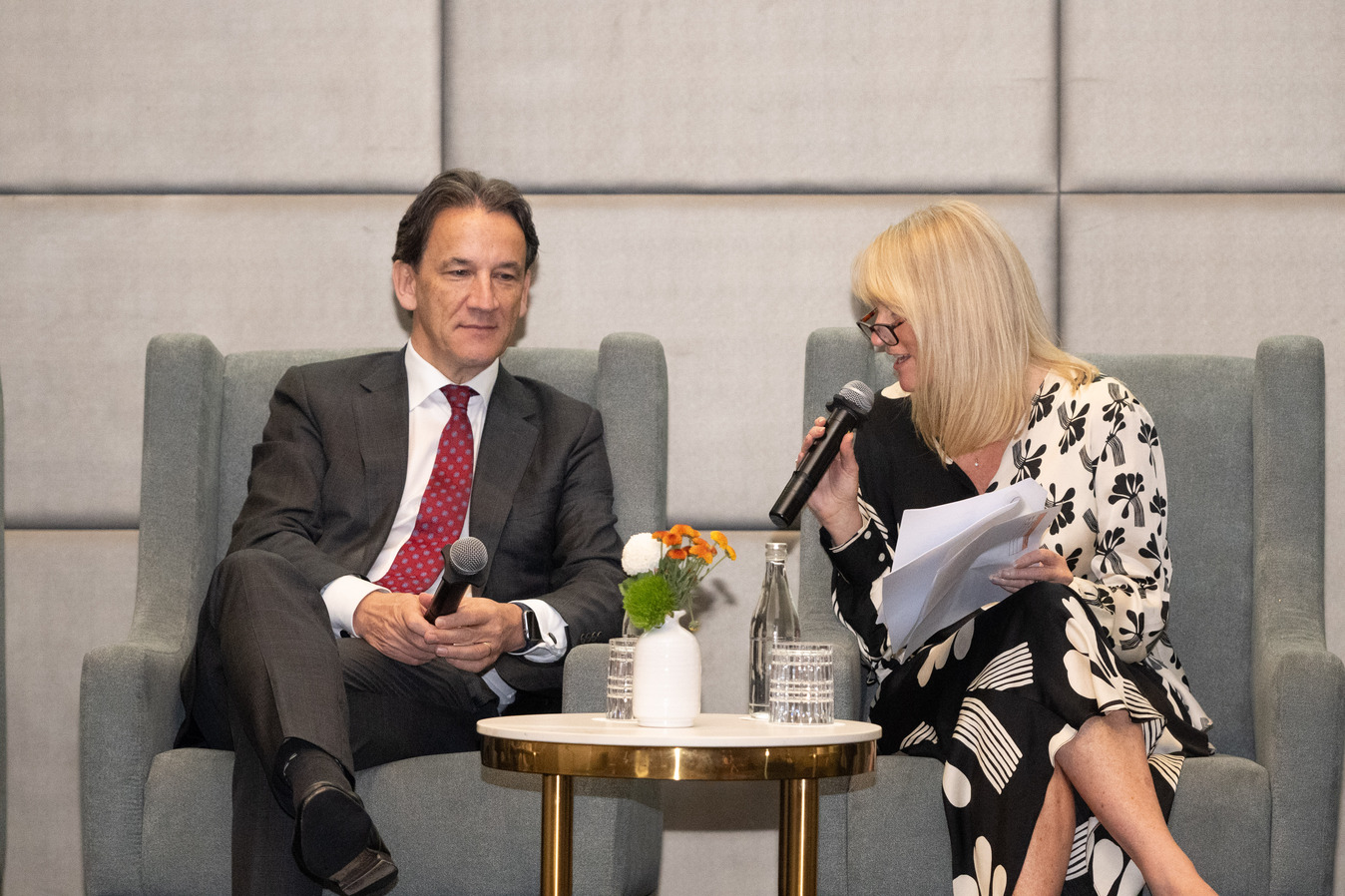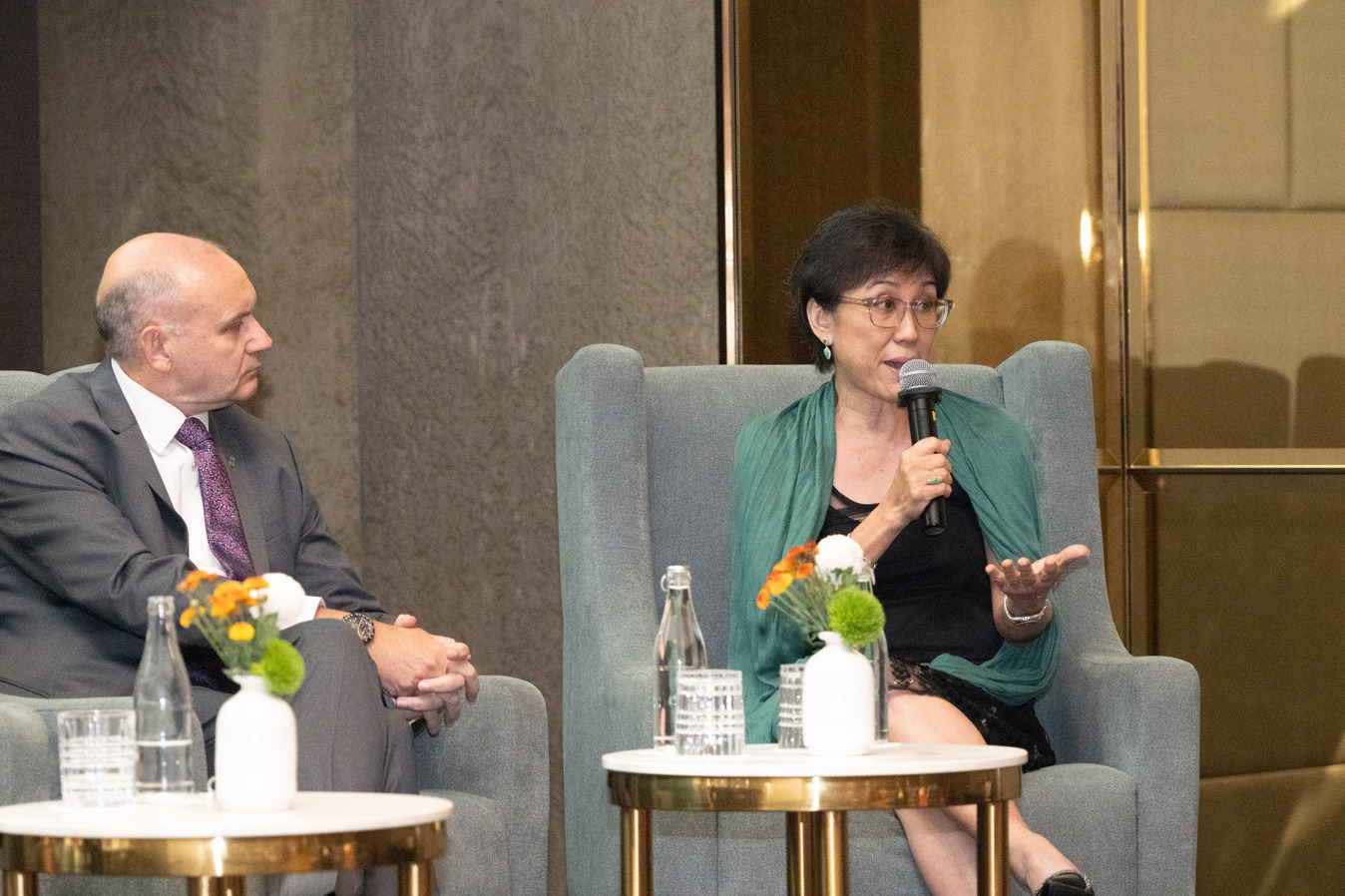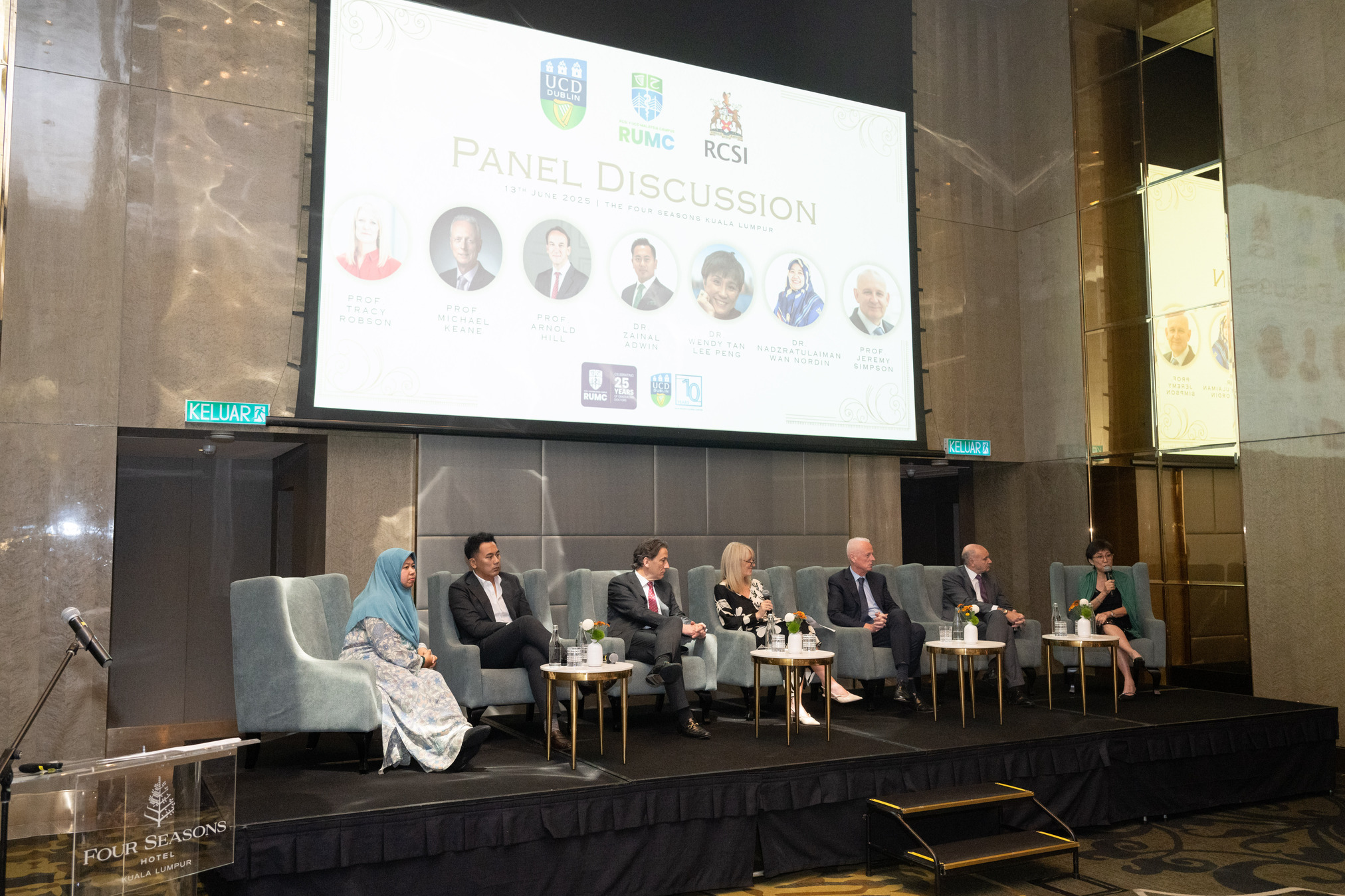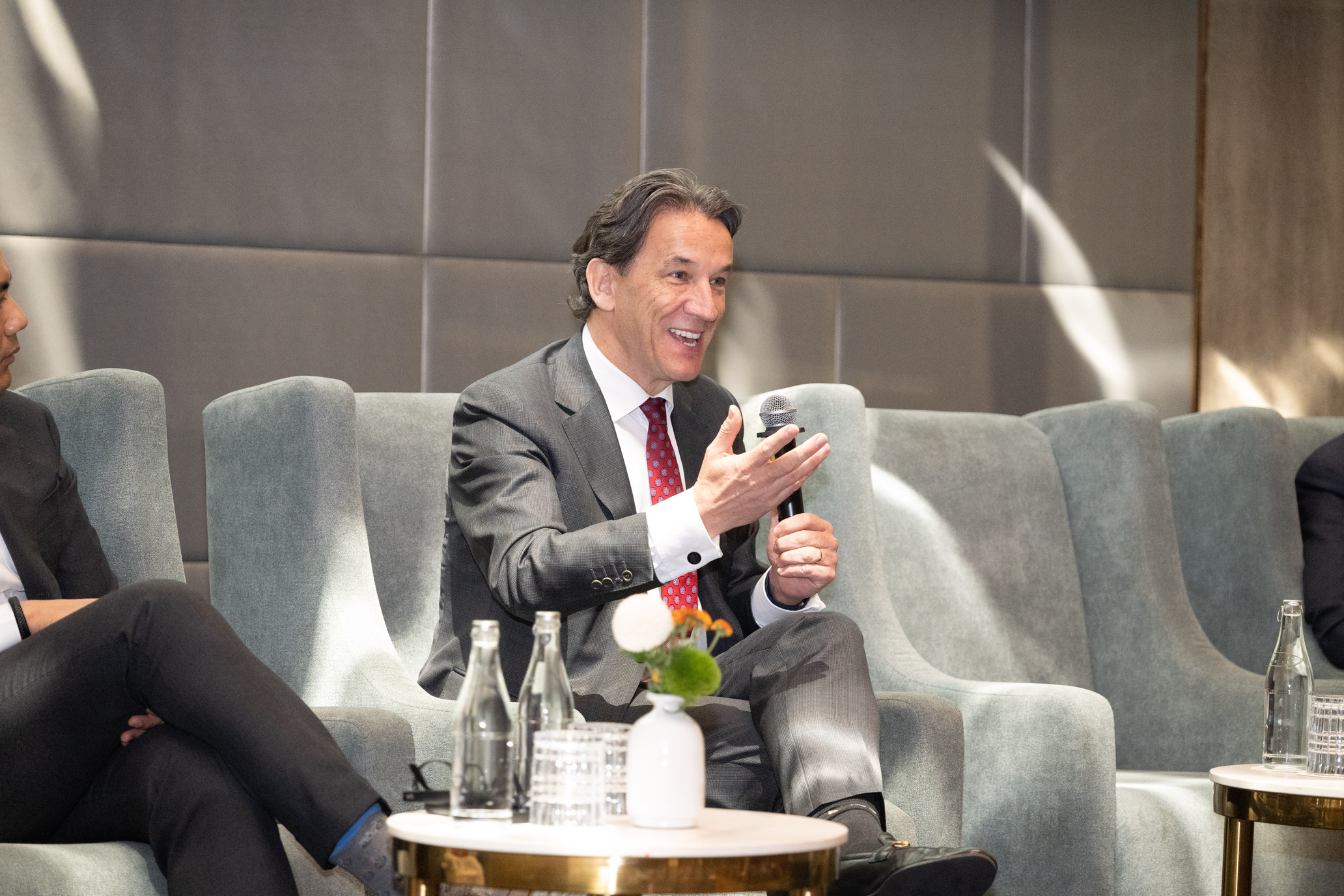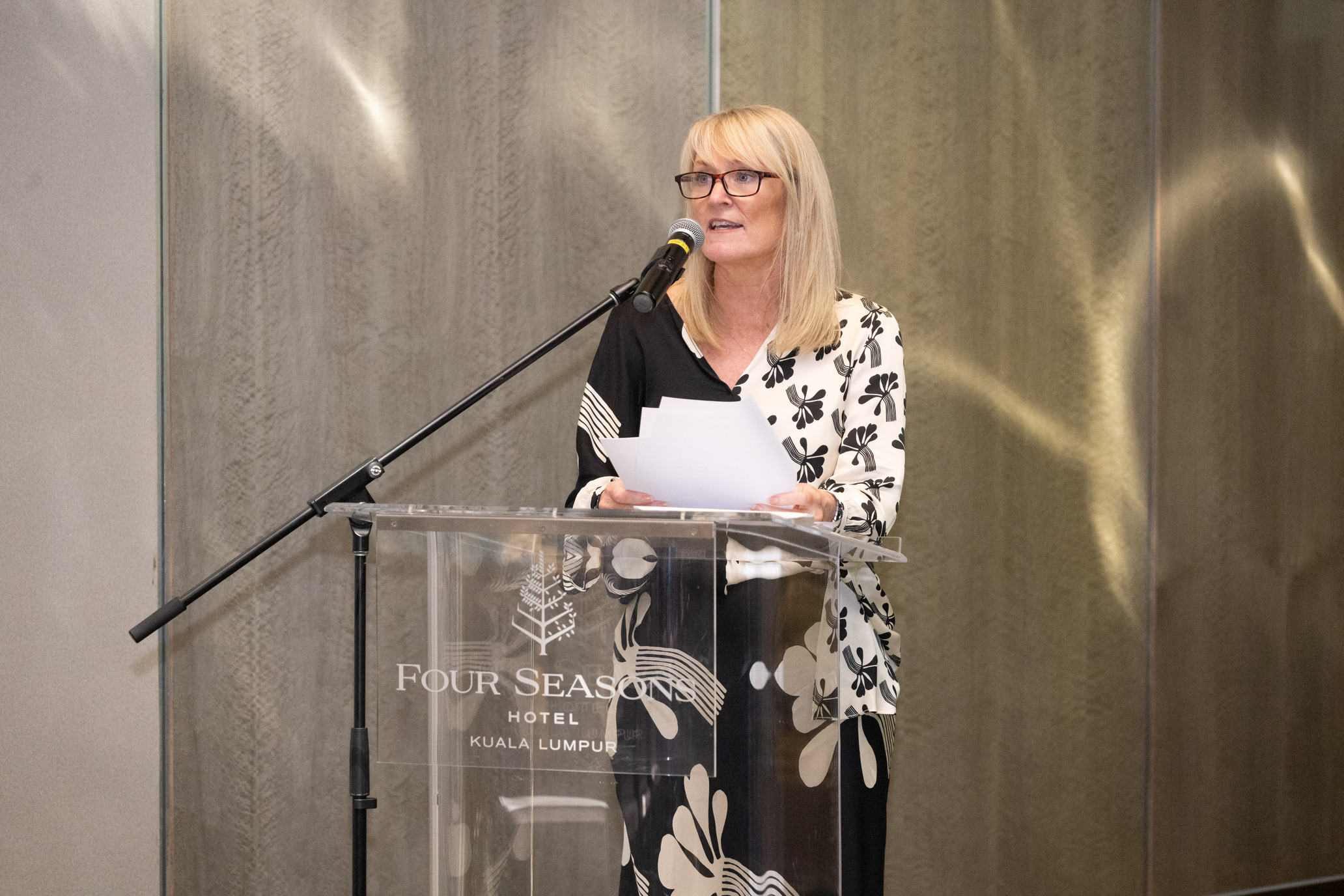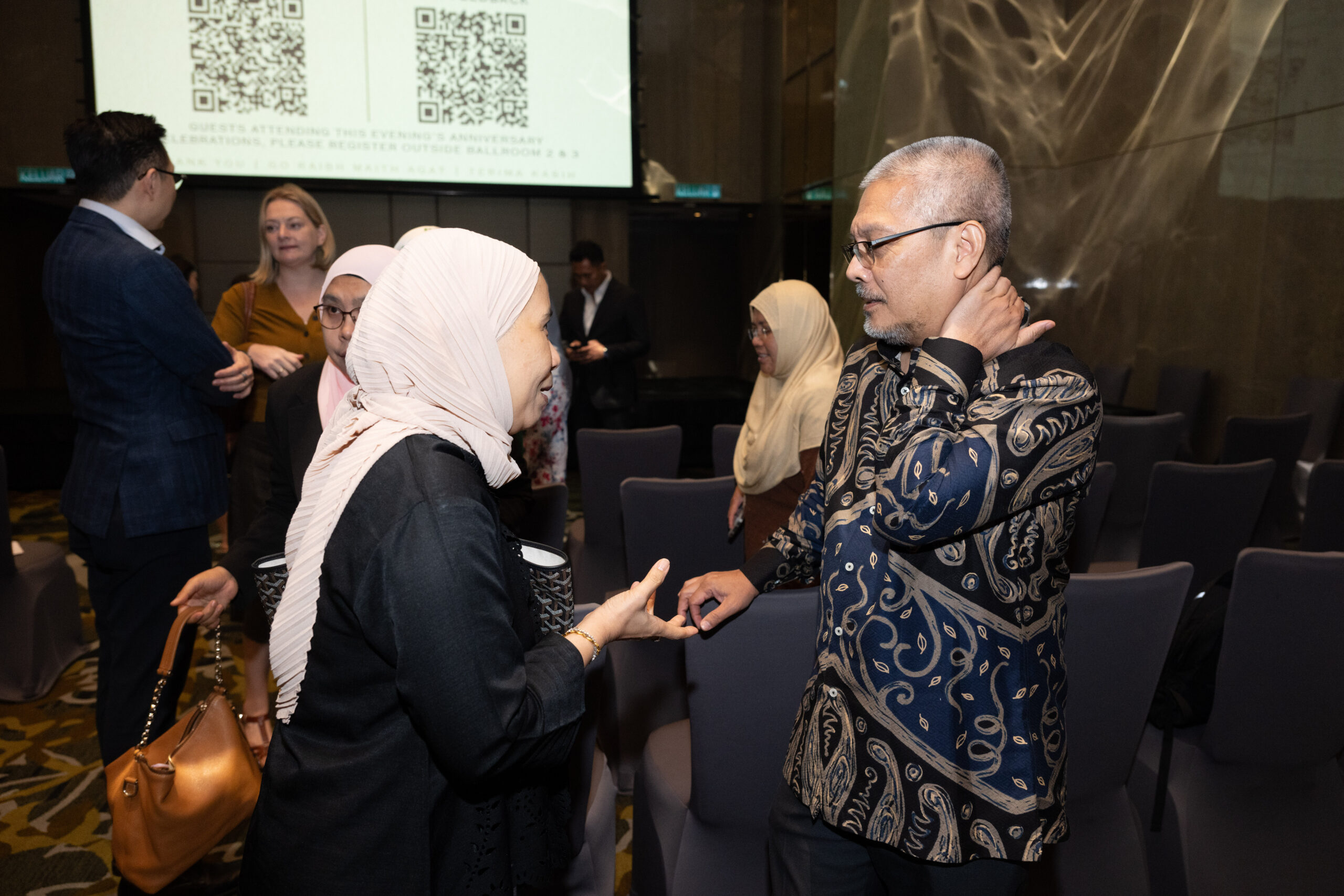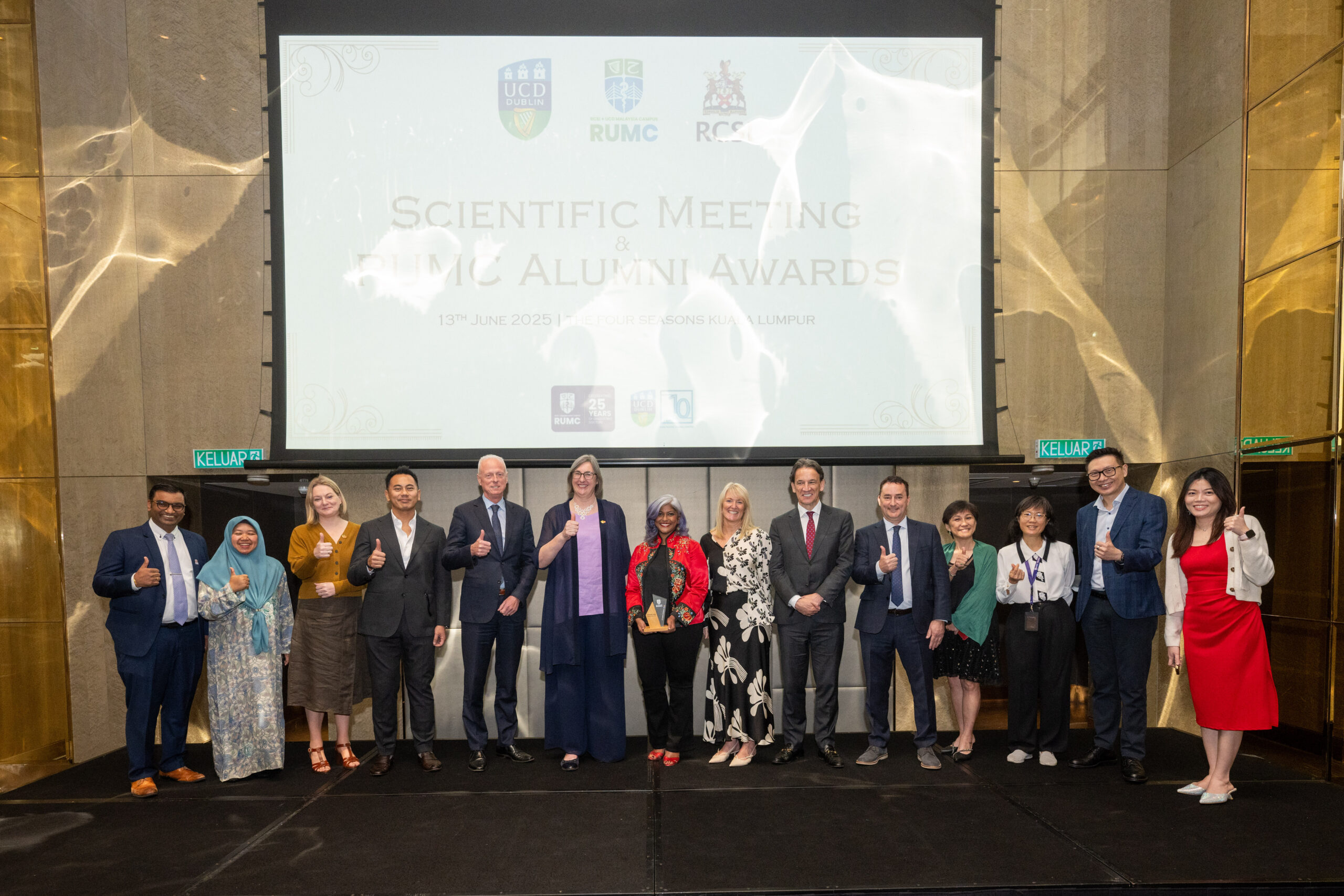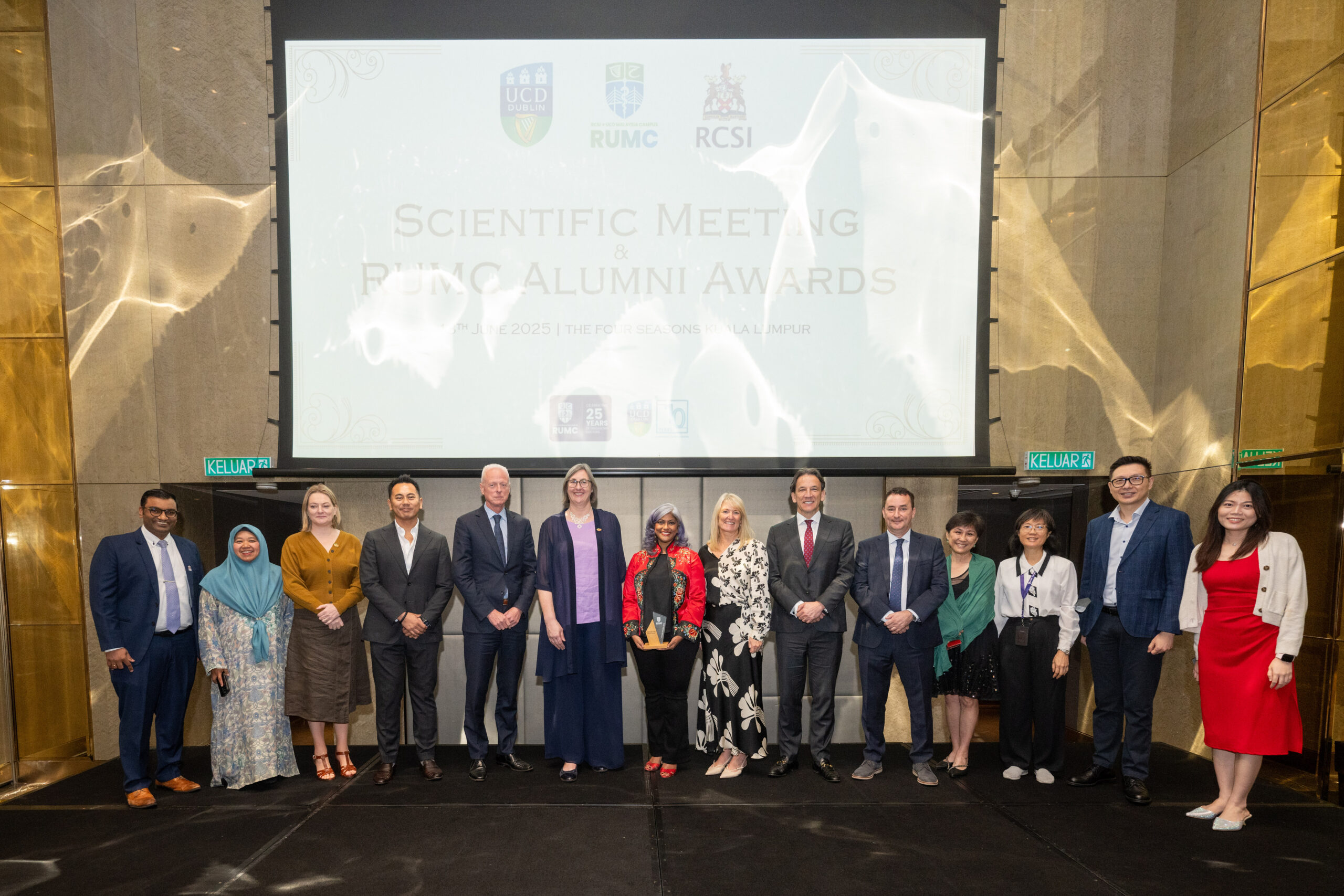In conjunction with the 25th RUMC Conferring Ceremony and the 10th Anniversary of UCD Asia Pacific Global Centre, the celebration hosted its Scientific Meeting and Inaugural Alumni Awards on 13th June 2025 at the Four Seasons Hotel, KLCC.
The afternoon opened with two thought-provoking keynote addresses under the theme “Transformative Advances in Medicine and Surgery.” The event brought together healthcare professionals, alumni researchers and students for a dynamic exchange of ideas on how technology is reshaping clinical care.
Professor Arnold Hill set the stage with his keynote on Pioneering Robotic Surgery, offering a glimpse into the rapidly evolving world of surgical practice. While today’s robotic-assisted procedures remain fully guided by surgeons, he highlighted that the future may see robots independently performing intricate tasks such as suturing, powered by complex algorithms and extensive data. While emphasising the potential for precision and efficiency, Professor Hill also raised a poignant question: “What happens to the human element?” With a smile, he reminded the audience, “We still need someone to be nice and talk to the patient.”
Next, Professor Michael Keane presented New Insights into Rare Lung Disease, showcasing RareLungAI, an innovative tool harnessing artificial intelligence to detect conditions such as lymphangioleiomyomatosis. These rare diseases are often under-recognised, delaying diagnosis and treatment. Professor Keane shared promising advances in multiomic biomarkers and risk stratification tools that could transform early intervention, where AI not only aids diagnosis but also predicts disease progression and treatment response.
A vibrant panel discussion followed, moderated by Professor Tracy Robson, featuring six distinguished experts: Professor Arnold Hill, Professor Michael Keane, Professor Jeremy Simpson, Dr Zainal Adwin, Dr Nadzratulaiman binti Wan Nordin and Dr Wendy Tan Lee Peng. The discussion spanned topics from AI-enabled diagnostics in research to smart stethoscopes capable of transmitting heart and lung sounds via smartphone apps in primary care.
The session also spotlighted advances in urology and obstetrics, demonstrating how innovation is reaching every corner of medicine. Yet, amid the enthusiasm for technology, the panellists underscored a unifying truth: while AI and robotics may transform practice, they cannot replace the compassion, intuition and human connection at the heart of medicine.
With 92 participants in attendance, including 61 proud RUMC alumni, the discussion proved both stimulating and inspiring. Many expressed enthusiasm for future sessions that continue to bridge science, technology and the deeply human side of medicine.






